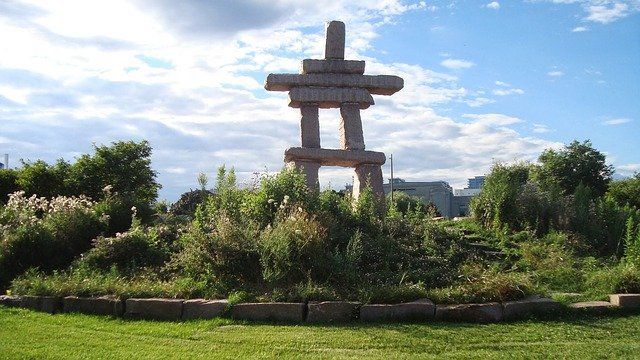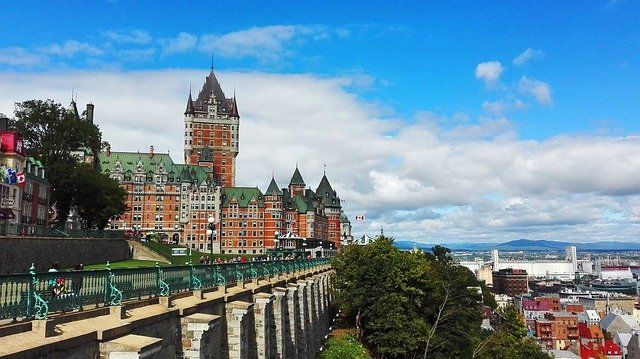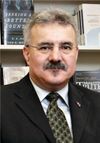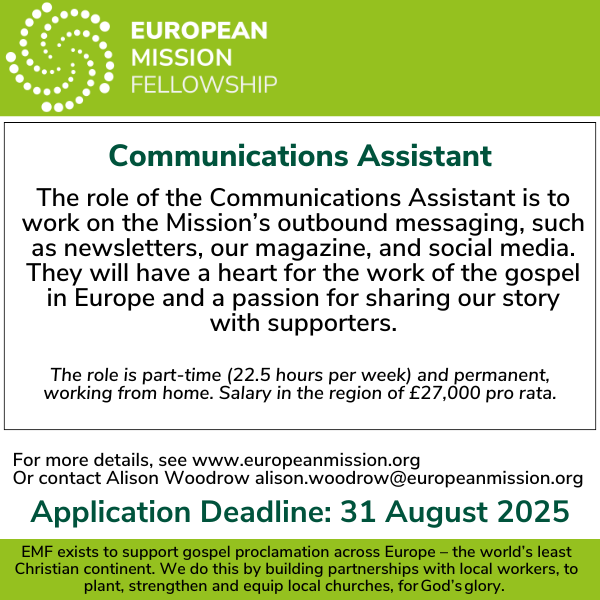When I was a boy of eleven, my parents informed me that our family was emigrating from the English Midlands to Canada. My mind could only conjure up scenes of endless winter and, to my distress, a land without history!
Well, I have discovered that my childish thoughts were not entirely correct. The winters of Ontario, where we came to live, were not endless and my new homeland did have a history, a rich one (though to a young mind immersed in mediaeval knights and Roman soldiers, it was not as romantic!).
New France
The history of the Canadian First Peoples (formerly known as Canadian Indians) obviously reaches back for some millennia.
The first European settlement was the brief one of the Vikings in Labrador around the year 1000. European settlement, though, did not begin in earnest until the arrival of John Cabot on 24 June 1497.

In the next century it was primarily the French who explored and then colonised what would become N
ew France. The first permanent French settlement in Canada was built at Port Royal, on the Bay of Fundy, in 1605.A significant number of the early French colonists were Calvinistic Huguenots. They were prepared to risk money and lives in the development of the colony before they were finally excluded by the notorious Cardinal Richelieu and his Jesuit supporters in 1635.
One of the founders of the Port Royal settlement, for instance, was Pierre de Gua de Monts (c.1558-1628), an ardent Huguenot.
English settlers
The British conquest of New France in 1760 (the decisive battle being fought the year before, outside the walls of Quebec City, on the Plains of Abraham) was obviously a key moment in the history of Canada.
This battle opened the way for more English-speaking settlements in the Maritime States (New Brunswick, Nova Scotia and Prince Edward Island), where the British had been a dominating presence since 1713, and in Quebec itself.
The emigration of English-speaking people to Ontario followed the loss of the American colonies in the American Revolution (1776-1783).
Along with this new wave of emigration came the gospel. Revival swept Nova Scotia and New Brunswick during the late 1770s and early 1780s, through the preaching of Henry Alline (1748-1784).
The long-term result was a strong Baptist presence in these two provinces, a presence that has continued to the present day.
Nineteenth-century Ontario saw the Methodists and Presbyterians make great gains in terms of church planting and numerical growth. By 1861, just over 55% of Ontario’s population went to either a Methodist or Presbyterian church.

By the end of the century more than 60% of the population of English-speaking Canada would have described themselves as Evangelical.
In Quebec, the labours of such individuals as Henrietta Feller (d.1868) and Louis Roussy (d.1881) saw the emergence of close to 20,000 Francophone Evangelicals.
Evangelical decline and renewal?
The twentieth century saw a dramatic reversal in this situation. Two world wars, theological liberalism, the growth of consumer culture, the embrace of pluralism as an ideology all have played their part in diminishing the influence of Evangelicalism and in marginalising Evangelicals.
By the 1980s it is estimated that the number of genuine believers in the entire country was around 8% of the population. A controversial poll in the 1990s maintained that 16% of all Canadian adults over the age of 18 held to quintessential Evangelical beliefs. However, recent figures in Operation World more realistically estimate Evangelicals at 10.8%.
The challenge of Quebec
In Quebec, Roman Catholicism remained dominant until the so-called Quiet Revolution of the 1960s, when the Roman Church lost much of its hold over the people of that province.
There was only a very small Evangelical Francophone population able to take advantage of this change of affairs, however.
In the earlier part of the twentieth century, overt persecution had driven many of the French believers to Ontario, the Maritimes, or the United States. The result was that English-speaking missionaries to the province in the 1930s and 1940s had to begin virtually all over again in planting Evangelical churches.
In the 1970s and early 1980s, however, there was a genuine measure of revival among the Fellowship of Baptists and Brethren, and congregations of believers began to spring up throughout the province.
Much still remains to be done in Quebec since French-speaking Evangelicals number less than 1% of the province’s population. It bodes well that many of the churches are convinced that prayer and fervent evangelism are the keys to winning Quebeckers to Christ.

Other challenges
Besides issues common to the Western world secularism, materialism and post-modernity, for example Canadian Christians face unique challenges in addition to the situation in Quebec. Among the greatest of these is planting the gospel among the indigenous peoples.
Many who live on the reservations provided for the First Peoples are caught in a vicious cycle of alcoholism, substance abuse, and violence. Suicide rates are at their highest among teenagers living on the reservations.
The rise of New Age philosophies has also encouraged the return of some of the First Peoples to their animistic past.
The large urban centres of Vancouver, Calgary, Toronto, Ottawa, and Montreal provide an enormous challenge too. These cities are some of most multi-cultural areas of North America, indeed of the world, with large populations of Chinese, Asian Indians, Muslims and Sikhs (Vancouver is the world’s second largest centre for Sikhs).
Many Evangelical churches have abandoned the inner cities and moved to the suburbs. The challenge will be to re-enter these cities, where real-estate is often very expensive, and plant churches among the various people groups.
Quite encouraging has been the advance of the gospel among the Chinese, of whom there are close to a million in Canada. Here the need will be to prevent the Chinese language churches from becoming insular and failing to connect with other Evangelicals.
Drawing encouragement from the past
Some view separatist politics in Quebec and Western Canada (Manitoba, Saskatchewan, Alberta, and British Columbia) as another problem for Christians. But the unsettling nature of a political (though peaceful) dismantling of the country could lead men and women to seek security in the One who never changes.
Certainly, this has been the case in the past, for example, the revival in Nova Scotia during the tumultuous days of the American Revolution.
There has never been a nationwide revival, such as the United States and Britain have known. But there have been local revivals, as in Hamilton, Ontario, in 1857, and Saskatchewan in the 1970s.
These give hope that God will yet cause his face to shine upon the land as a whole and make the old term, the Dominion of Canada a phrase drawn from Psalm 72:8 (He shall have dominion from sea to sea) a reality once again.








